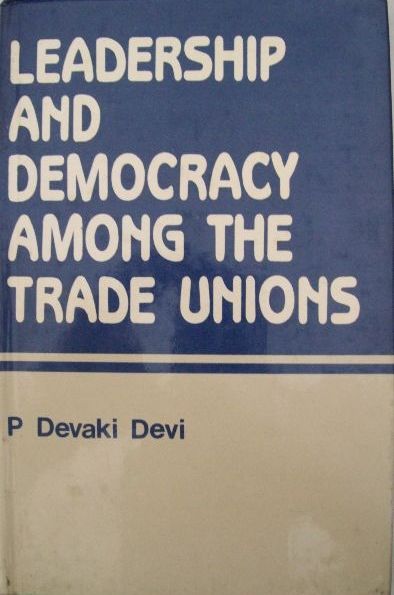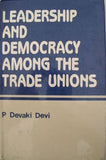Leadership and Democracy Among The Trade Unions: A Comparative Study
Regular price
Rs. 210.00
Democratic government is considered possible in middle class societies. In the trade union context, democratic mechanisms are expected to operate only in unions whose members are well-educated, have economic as well as job security, and the status gap between the leader and the member is not wide. In the modern form of democracy, some Western researchers find that only the form of the union is democratic but in practice the iron law of oligarchy is found operating. Marx, Engels, Bulcharin and Weber view that certain obstacles arise in democratisation of unions in the preliminary stages of unionism, but in their ultimate analysis they agree that unions operate democratically. In this regard, Lipset is of the opinion that the institutionalised 'two party system' supported by informed and interested rank and file lead to union democracy. In the midst of these postulates, the main indices of union democracy formulated are: a) Constitutional framework of the unions, b) decision-making, and c) participation of the leaders and the members. Methodologically, the problem is approached from a structural-historical and interactional perspective based on 'ex-post-facto' model. The study indicates that democratic government is possible in trade unions, provided some conditions such as formal democratic guarantees and a history of democratic functioning are assured. It is also known that prevalence of democratic tendencies is influenced by a variety of factors such as outside leadership with political contacts, schooling and income. Informal learning through work, union and political experience and leadership training appears to increase leaders participation rate.
Dr. (Mrs.) Puvvada Devaki Devi (b. 1946) passed her M.A. (Social Work) and obtained post-Graduate Diploma in Applied Statistics. She was awarded Ph.D. in Industrial Relations and Personnel Management from Andhra University, Waltair. Currently she is a Lecturer in the Deptt. of Industrial Relations & Personnel Management, Andhra University, Visakhapatnam where she has been teaching the Post Graduate students for the past 13 years. She has several research publications and research reports to her credit. She is also the author of LABOUR PROBLEMS, a Book for B.A. Industrial Relations written in Telugu and published by Telugu Akademy.
Guaranteed Safe Checkout





